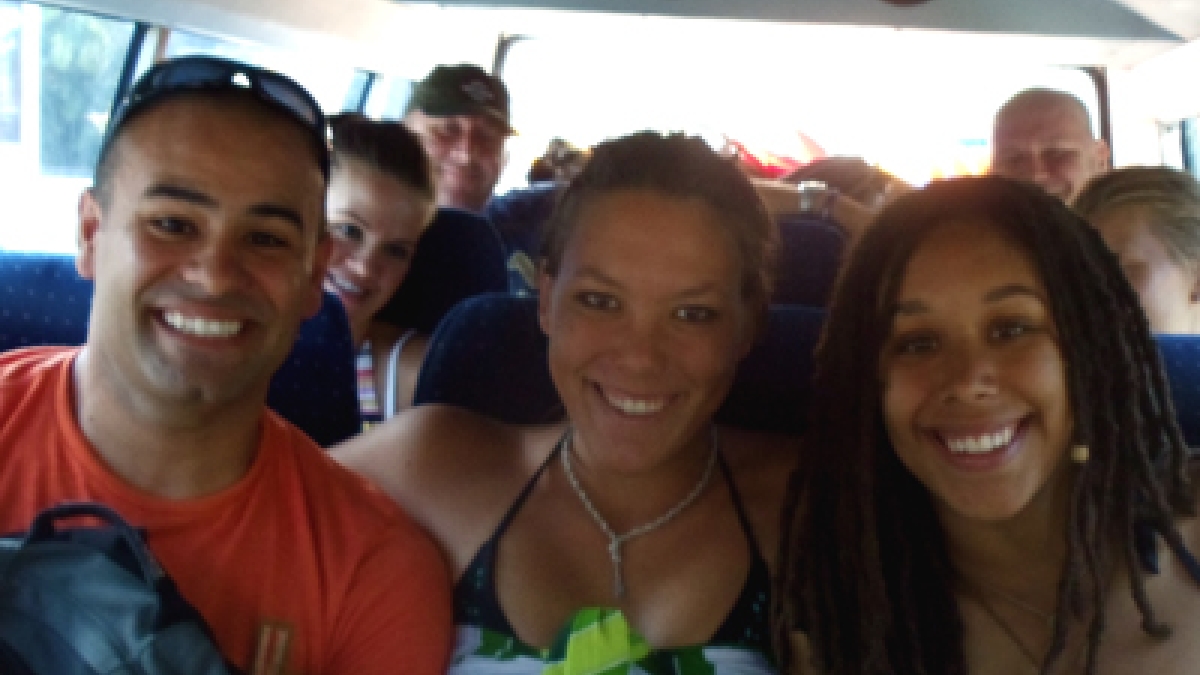Earthquake in Haiti shakes ASU grad's career path

When Erica Warkus took her first steps on an ASU campus, becoming a life sciences major was the last thing she thought she'd do. Little did she know that four years later she would find herself studying marine biodiversity and taking steps toward becoming a doctor.
As a student in Barrett, the Honors College, Warkus knows a thing or two about hard work. During the last few months of the Spring 2012 semester, she has spent countless hours in professor Sharon Hall’s desert ecosystem ecology lab working on her honors thesis. And after working so closely with Hall, Warkus has nothing but kinds words to describe her mentor, who, she says, “always pushed me to do better than I would have by myself.”
To enrich her academic experience, Warkus chose to study abroad in the mountains of Monetverde, Costa Rica, on a trip that focused on tropical ecology and conservation, which coincidentally happened to be the specialization of her major. During the trip, she was able to get a hands-on experience in the forest preserve and experience things she had only once read about in textbooks.
In 2010, however, the catastrophic earthquake that hit Haiti forever changed the lives of millions, including Warkus. After seeing the devastation on television and hearing personal accounts from her aunt who was the director of a nursing unit at a hospital set up by Project Medishare Haiti, Warkus knew she had to answer the call for help.
That November the senior volunteered her time helping those injured and in need. She saw everything from infections to broken bones – some which ultimately claimed lives, as the country did not have enough medical supplies needed to tend to the affected masses.
“That trip made me want to become a doctor,” says Warkus. “These people are 90 minutes away from the United States where they would all have been fine. I want to be able to travel to other places of the world where help is needed and volunteer. If you can help someone, why wouldn’t you?”
Upon returning home, Warkus continued her schooling and accepted the NSF Diversity Scholarship in the summer of 2011 to study marine biodiversity in Indonesia. For her, being out in the ocean and studying echinoderms was a dream come true.
“I think sea critters are awesome. The ocean is like an alien world – you don’t see anything like it every day,” she says.
Warkus plans to return to Indonesia on a Fulbright scholarship to continue the research she began in 2011. In the meantime she is enjoying the little time she has left as a student at ASU. This includes spending time with friends, studying for finals and celebrating the completion of her honors thesis.
“I really like school and being surrounded by people I know," she says. "ASU has done a lot for me, and I’m really grateful for where I am.”
To accomplish her dreams of becoming an anesthesiologist, Warkus is currently finishing up the prerequisites needed to attend medical school, and plans to take the MCAT in May. She wants to return to her home state and attend the University of Hawaii.